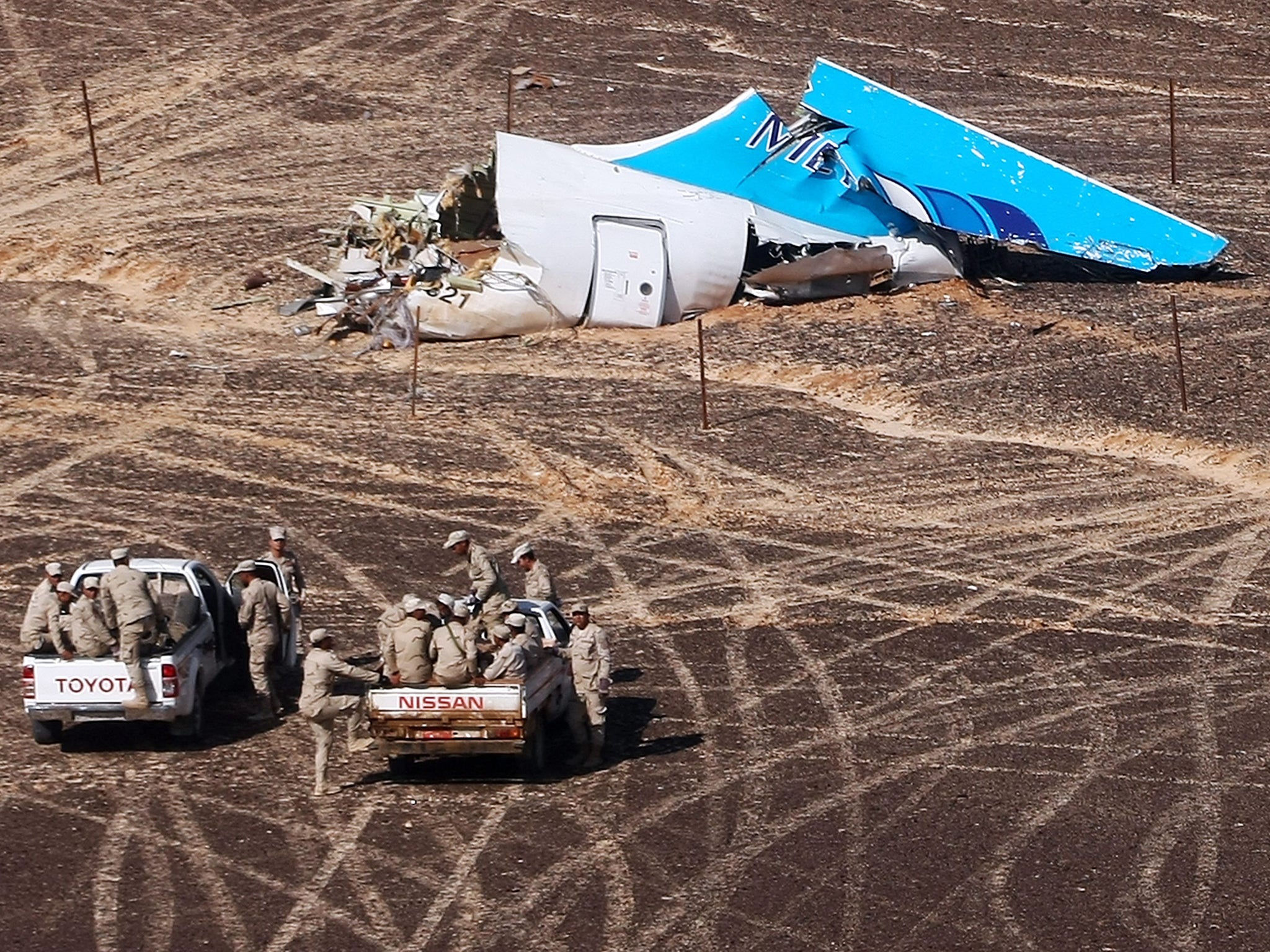Egypt plane crash: If Isis didn’t blow up the Russian passenger jet – what could have happened to it?
UK and US intelligence agencies had previously said it was 'highly likely' that a bomb had brought down the jet

Your support helps us to tell the story
From reproductive rights to climate change to Big Tech, The Independent is on the ground when the story is developing. Whether it's investigating the financials of Elon Musk's pro-Trump PAC or producing our latest documentary, 'The A Word', which shines a light on the American women fighting for reproductive rights, we know how important it is to parse out the facts from the messaging.
At such a critical moment in US history, we need reporters on the ground. Your donation allows us to keep sending journalists to speak to both sides of the story.
The Independent is trusted by Americans across the entire political spectrum. And unlike many other quality news outlets, we choose not to lock Americans out of our reporting and analysis with paywalls. We believe quality journalism should be available to everyone, paid for by those who can afford it.
Your support makes all the difference.The mystery about what downed a Russian holiday flight in Egypt’s Sinai Desert has deepened, after the Egyptian investigators said they could find no evidence of a bomb.
Metrojet flight 9268 crashed on 31 October, shortly after taking off from Sharm el Sheikh on a charter flight to St Petersburg. There were no survivors among the 224 passengers and crew aboard the Airbus A321.
Captain Ayman al-Muqaddam of Egypt's Aircraft Accident Investigation Central Directorate said there was no indication of "unlawful interference," with the aircraft.
The announcement unlocks other theories about the cause of the tragedy. These include a failure in the aircraft's pressure bulkhead, possibly as a result of earlier structural damage in a tail-strike; an explosion in a fuel tank; or a catastrophic fire involving lithium batteries.
The investigator’s findings flatly contradict the Kremlin’s insistence last month that an improvised explosive device was responsible.
Four weeks ago Alexander Bortnikov, director of Russia’s Federal Security Service, told President Putin he could say “with confidence” terrorists were responsible: “According to our experts, a self-made explosive device equivalent to up to 1kg of TNT was set off on board.”
Moscow’s announcement surprised the aviation community. Russia is represented in the investigation, along with France (where the plane was designed) and Ireland (home of the leasing company that owned it). But Egypt is responsible for identifying the cause, and it is highly irregular for any government to say they know what brought down a plane ahead of the official investigators.
The militant group Isis claimed responsibility for downing the jet, saying an operative had planted explosives concealed in a soft-drink can aboard the plane. But apart from releasing a picture of the device it says was used, no further evidence has been presented.
In the wake of the crash, UK and US intelligence agencies said it was “highly likely” that a bomb - probably planted at Sharm el Sheikh airport - had brought down the aircraft. So strong was the belief that British airlines were banned from flying to the resort until security is improved.
UK government sources told The Independent that the working assumption is that the crash was caused by an explosive device: “That remains our assessment, but we will of course study the Egyptian investigation's findings carefully.”
Britain’s Ambassador to Egypt, John Casson, visited Sharm el Sheikh last week as part of a joint action plan to improve airport security. He said: “Successful implementation of the plan will allow the return of flights as soon as possible.” No date has yet been set, leading to airlines making “rolling cancellations”. All carriers have axed their Christmas/New Year flights, and Monarch has announced it will not fly to Sharm el Sheikh until 24 January at the earliest.
The ban on flights over the peak Christmas and New Year period has been extremely damaging to Egypt's tourist economy. With each day that Sharm el Sheikh remains off-limits, pressure increases on the government in Cairo to improve security at the nation’s airports.
The Ministry of Civil Aviation said the Egyptian government has been meeting “elite important international security companies and risk-assessment firms" in order to win backing from foreign governments and boost travellers’ confidence.
The recruitment of an international body to assess airport security would be something of a U-turn for the Egyptian government, which has repeatedly insisted that Egypt is capable of dealing with its security against terrorist threats. It also undermines President Abdel-Fatah al-Sisi, who has staked his popularity on stabilising and securing the country.
Join our commenting forum
Join thought-provoking conversations, follow other Independent readers and see their replies
Comments